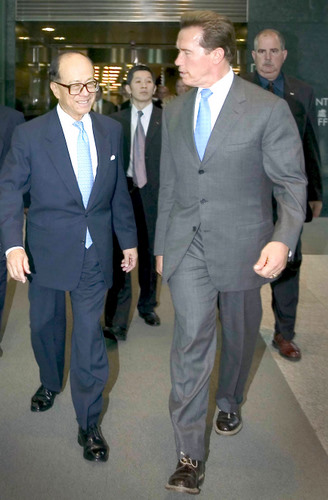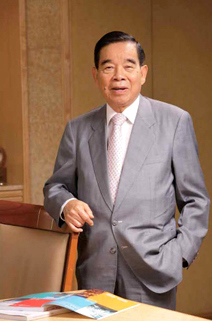
Translated by Andrew Vanburen from a Chinese-language piece in China Economic Weekly
THERE IS NOTHING that symbolizes fat cats and industry barons more expertly than the institution of a property tycoon.
The rapidly accumulated wealth, speculation and high-profile projects all make those in control of coveted plots potentially very, very rich.
Many of us more seasoned senior investors may be familiar with the board game Monopoly in which the goal is to push your competitors out of the property market and become the dominant developer.
And we may in fact have a real-time life-action version of this popular rainy day game being played out in Hong Kong right before our very eyes.
But instead of the small car, top hat and pooch as game tokens, we have four powerful tycoons solidifying their hold over Hong Kong’s real estate sector, thanks to their investment diversity in residential, retail and gaming properties as well as endeavors in non-property sectors like jewelry.
It’s not like this handful of well-heeled magnates have been handed four crowns and asked to take charge.

They simply decided to take charge, by hard work and a bit of luck, and take charge they have.
And their accomplishment is by no means a small feat, as the property sector and all its ancillary supportive and related industries are responsible for around half of Hong Kong’s entire economy.
All four tycoons and the families to which they serve (or served) as patriarchs all have a few things in common.
They all rubbed shoulders together during the topsy-turvy days of turmoil in the decade of the 1960s in Hong Kong, when student protests and labor unrest made the investment environment as volatile as property prices at the time.
But therein lies the key...
These four players all got in on the ground floor, and over the past four decades they have tried their best not to step on each other’s toes in climbing to the proverbial penthouse apartment of the real estate industry.
So who are these mega-powerful magnates?
Li Ka-shing
High-school dropout Li Ka-shing is the 83-year old chairman of both Hutchison Whampoa Ltd and Cheung Kong Holdings.
Named “Asia’s Most Powerful Man” by Asiaweek in 2001, the man nicknamed “Superman” in Hong Kong is currently the ninth richest person in the world with a current net worth of over 25 billion usd.
As for his importance to the Hong Kong Stock Exchange, suffice it to say that his companies make up 15% of the bourse’s total market cap.
The Kwok Family
Kwok Tak-seng, founder of Hong Kong’s biggest developer Sun Hung Kai Properties, may have passed away in 1990, but his family empire still counts as one of most powerful and influential four in terms of their control over the Special Administrative Region’s all-important property sector.

Over the past several years, the tussle between his three sons – Walter, Thomas and Raymond – for control of the empire nearly brought it down.
But in stepped the patriarch’s widow Kwong Siu-hing four years ago to assume chairmanship and bring peace to the family business, thus solidifying their position within the top four.
Lee Shau-kee
Majority shareholder of Henderson Land Development Lee Shau-kee, at 84 years of age, is a few months older than Li Ka-shing, but also a few dollars short.
Not to worry, his personal wealth of 19 billion usd currently makes him Hong Kong’s second richest individual after Li.
But he doesn’t just play the property market.
Much of his recent wealth has been won by making investments in PRC-based listed enterprises earning Lee the nickname “Hong Kong’s Buffett.”
Cheng Yu-teng
As the majority owner of Chow Tai Fook Jewelry, Cheng Yu-teng was nearly vaulted to the top of Hong Kong’s rich list after the firm’s recent listing in the SAR.
With a net worth of 16 billion usd, Cheng is still an extremely powerful man, with widespread interests in real estate in both Hong Kong and neighboring Macau, including the ever-popular gaming sector.
See also:
CHINA CEO Salaries Skyrocket
CHINA NEW TOWN Inks Landmark Beijing Fund Deal
HOUSE MONEY: Top 500 PRC Developers Assets Up 50% To 5 Trillion Yuan







